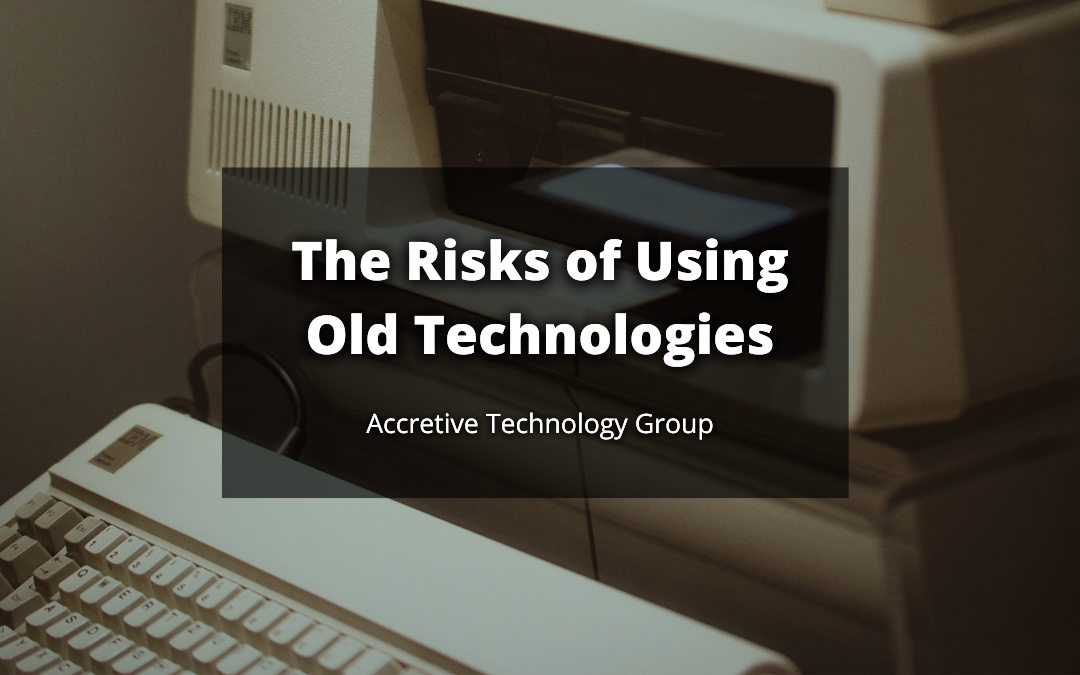The rotating hourglass, the spinning rainbow ball, and the endless pop-up notifications are all familiar to anyone who has used a computer or similar systems. At some point, we all experienced frustration when using an outdated or “legacy” system.
Despite the frustration and pain that older technology can cause, it is still very important to consider the risks associated with using outdated technology. Not only are they more vulnerable to cybersecurity threats, but they can also impact a company’s bottom line. This report identifies some risks that can make you rethink your use of outdated technology.
Crashes and System Downtime
The rise of cloud services and software-as-a-service applications has helped reduce the risk of data loss due to a computer crash. Today, people are demanding more from their technology providers, and they expect it to be delivered with the same level of reliability and security that they have come to expect. If a system failure or crash prevents an organization from receiving what they want, they will typically leave the business to search elsewhere for what they need. There is strong competition out there that can provide the right technology to meet these demands. The main risk here is that you’re putting off replacing your old tech, which can lead to lost revenue and trust, as well as system downtime.
Increased Costs
Old technology is expensive to maintain, just like it is to maintain a vehicle or home. According to a study, the US government’s cost of maintaining ten legacy systems is around $337 million annually.
In 2015, CNN Money reported that the US Navy could pay up to $31 million to retain the use of Windows XP, an operating system that was discontinued by Microsoft. Despite this, the Navy still wanted to maintain its legacy systems, so Microsoft only had to name a price for the Navy to continue using the XP systems’ operations.
Besides being expensive to maintain, it can also take a lot of time away from your business to fix and make it work. Having outdated technology can additionally negatively affect your employee morale and satisfaction. No one likes to feel like they have the wrong tools to succeed, so having outdated technology can make your workers feel like they have no choice but to use antiquated technology. Also, many legacy systems use more power than newer technology, which can create unnecessary overhead expenses for your business.
Decreased Productivity
Having productive employees is very important for any business and losing them can be very costly. The slower performance of legacy technology and the longer it takes to perform tasks are some reasons why it’s more time-consuming to maintain and update older computers than their newer counterparts.
One way to minimize the risk of hardware updates is through hardware-as-a-service, offered by some managed services providers, such as Meridian. This type of leasing allows businesses to get the flexibility of buying new hardware without having to spend a lot of money on upfront purchases. One of the main advantages of HaaS is that it eliminates the need for upfront capital expenditures. It also allows you to upgrade your old technology much earlier than you would with newer ones. Another benefit of this type of service is that it will enable you to scale up as your needs change.

